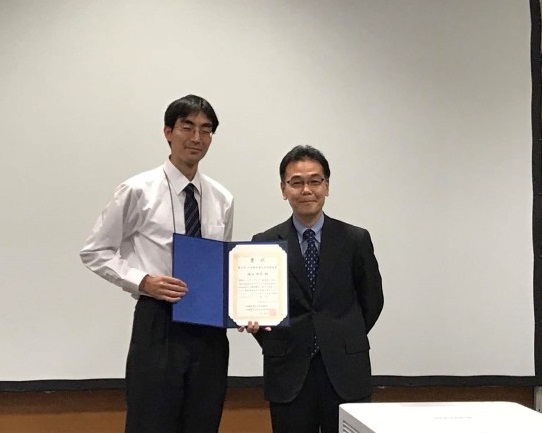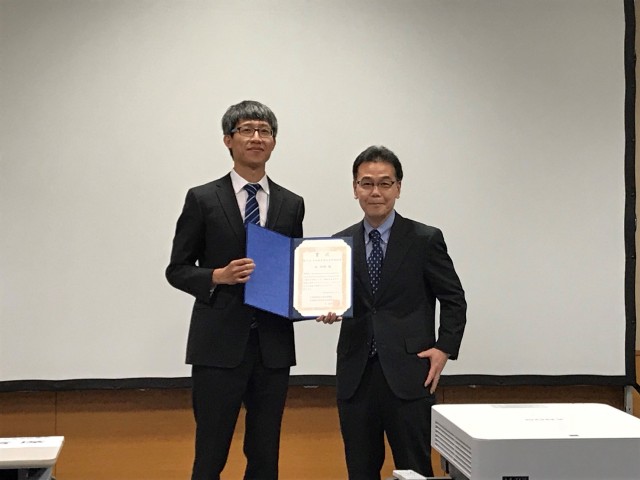Dr. Kousuke Umeda (postdoctoral fellow) and Mr. Ming ming Liu (a third-year student in the Doctoral Program in Animal and Food Hygiene of the Graduate School of Animal Husbandry) of the National Research Center for Protozoan Diseases were awarded the 9th encouragement award of the Japanese Society of Veterinary Parasitologists at the 161st meeting of the Japanese Society of Veterinary Science held at the Tsukuba International Congress Center from September 11 to 13. This award is presented to outstanding young researchers who are expected to contribute to the advancement of veterinary parasitology and its further development in the future.
Dr. Umeda’s study was titled, “Functional analysis of Toll-like receptor 2 and CC chemokine receptor 5 during Toxoplasma gondii infection – Based on the transcriptome of primary mouse brain cells” – Toxoplasma gondii is an obligate pathogen that infects approximately one-third of the world population and can cause encephalitis and neural disorder. Dr. Umeda performed a comparative transcriptome analysis of different types of brain cells infected with T. gondii and comprehensively revealed the relationship between Toll-like receptor 2/CC chemokine receptor 5, important immune receptor system response to pathogen infection, and gene expression in the various brain cells during T. gondii infection. This work will provide the necessary scientific knowledge to understand the mechanism of disorders caused by T. gondii infection, and will lead to the development of more effective treatment and prevention of the disease.
Dr. Umeda expressed his gratitude for receiving the award and his wishes for the future, saying, “I am deeply honored to receive this award. I would also like to thank everyone for their cooperation in this research. The field of bioinformatics is constantly advancing. Utilizing this work, I will make efforts to further develop Parasitology research.”
Mr. Liu’s study was titled, “Establishment of a stable transfection system for genetic manipulation of Babesia gibsoni.” The genus Babesia consists of about 100 species of tick-borne intraerythrocytic protozoan parasites. However, genetic modification methods have been established for only three species infecting cattle. Mr. Liu successfully established a genetic modification method for Babesia gibsoni that has caused an epidemic in Asia—including Japan—and inflicted severe damage on the pet industry. This method enables us to introduce foreign genes to the parasite and to easily knock out target genes in the parasite. This work is expected to help us identify virulence genes in the parasite and will be applied to the development of a novel recombinant vaccine using parasites attenuated by the knockout of virulence genes in the future.
Mr. Liu expressed his gratitude for receiving the award and his wishes for the future, saying, “I am deeply honored to receive the 9th encouragement award for young researchers from the Japanese Society of Veterinary Parasitologists. This award will encourage and inspire me to further contribute to development of this research. Finally, I would also like to thank Prof. Xuan Xuenan for his direction as well as all of the other professors involved in this research.”
- Dr. Umeda receiving the award (left)
- Mr. Liu receiving the award (left)






